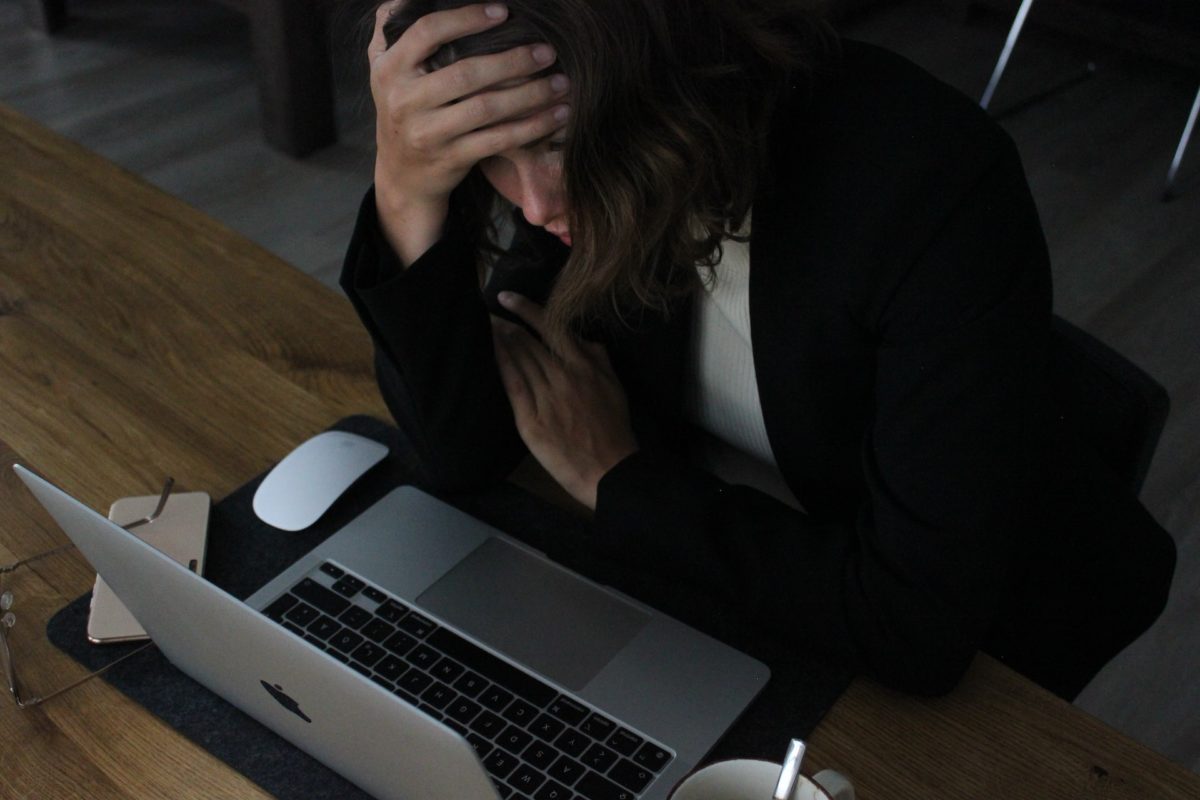December 15, 2022
What Is the Difference Between Stress and Anxiety?
Written by Rachel Eddins
Posted in Anxiety, Stress Management and with tags: Anxiety, generalized anxiety disorder, stress vs anxiety, stressed

The daily demands of life, such as completing family obligations, going to work, and caring for yourself, can become overwhelming. This pressure can cause you to feel stressed or anxious.
However, stress and anxiety can have differing effects on your mind and body and may be long term or short term.
Here at Eddins Counseling Group, we care about your mental health, and we want to help you determine how you’re feeling.
When you’re able to define how you’re feeling and what root causes have caused your stress or anxiety, you can start to seek therapy or other steps to improve your mood and daily life.
What Is Stress?
Stress is an emotional response that human bodies can feel physically, mentally, and emotionally, usually because of an external cause.
You may experience stress if you have an important presentation coming up at work or school, or you might notice an increase in your stress levels if you’ve recently been in a car accident.
Several life factors can cause you to feel more stressed. Sometimes you may be able to tell if you’re stressed based on how you’re behaving or feeling. Other times, it can be difficult to determine if that’s the feeling you’re experiencing.
Stress is a temporary feeling since external factors are often the cause of it. This means you may be able to locate the source of your feelings and work toward coping with them or resolving them.
It’s also essential to understand that even positive life events can cause stress, such as planning a wedding, purchasing a home, or moving to a new city. You may feel happy about these events, but they can come with stressful factors, like planning and managing your finances.
Here are some mental or behavioral symptoms you may experience if you’re stressed:
- Feeling nervous.
- Feeling uninterested in life.
- Feeling irritable or angry.
- Feeling overwhelmed.
- Experiencing racing thoughts.
Physical symptoms that can occur when you’re stressed are:
- Panic attacks.
- Chest pains.
- Sleeping problems.
- Sore eyes.
- Rashes.
Stress is a temporary condition that everyone experiences throughout their lives, but there are steps you can take to learn how to manage your stress levels. Understanding how you react to stress and what mechanisms work best for you can help you get through it.
What Is Anxiety?
Anxiety is a type of disorder where you feel prolonged, persistent, and excessive worry and fear about your daily life. When you have anxiety, it often can get in the way of your everyday life by dictating how you experience life and what you do or don’t do during your day.
You may notice that activities that were simple for you to complete before are now challenging or cause you to feel fearful. Unfortunately, anxiety and stress share several of the same symptoms, so it may be difficult to differentiate between the two.
Mental or behavioral symptoms you may experience with anxiety include:
- Experiencing uncontrollable overthinking.
- Feeling irritable.
- Feeling dread or panic.
- Experiencing heightened alertness.
- Experiencing appetite changes.
Here are some physical symptoms that may occur throughout your body if you have anxiety:
- Sweating.
- Trembling.
- Feeling nervous or restless.
- Feeling tired or weak.
- Having difficulty concentrating.
According to the Anxiety and Depression Association of America,
“Women are twice as likely to be affected as men. GAD often co-occurs with major depression.”
If you or a loved one are experiencing anxiety, there are treatment options available to help you manage your symptoms.
What Are the Different Types of Anxiety Disorders?
Several different types of anxiety disorders exist, including:
- Generalized anxiety disorder (GAD): The most common anxiety disorder is GAD, which causes you to feel excessive fear about your routine activities, and you find it difficult to control this fear.
- Panic disorder: Panic disorder is when you have episodes of sudden feelings of intense terror and anxiety that reach their peak within minutes, often by a panic attack.
- Social anxiety disorder or social phobia: Social anxiety disorder is when you experience high anxiety around social events, or you try to avoid social events when possible because you may think others view you negatively, you feel embarrassed, or you’re self-conscious about what you say during conversations.
- Separation anxiety disorder: Separation anxiety disorder is when you experience anxiety when you’re away from a specific person you’ve formed an attachment with, such as a guardian, friend, or partner, and you feel unsafe without them. Often, this disorder forms in childhood.
What Is the Difference Between Stress and Anxiety?
Understanding the difference between stress and anxiety can help you begin your journey to getting the help you need. One of the main differences between these feelings is how long each one lasts.
Generally, stress is a temporary feeling, which will disappear after you’ve finished a task or completed an event.
On the other hand, anxiety involves consistent nerves, usually over everyday tasks. This means that if you can’t identify an external factor or you’ve noted that there isn’t one, you’re likely experiencing anxiety.
Self-diagnosis is only helpful in identifying which way to seek help, like therapies and coping strategies.
How Do You Know Which One You’re Experiencing?
Usually, if your stress symptoms don’t resolve themselves after you try some coping mechanisms, it may mean you’re experiencing anxiety and need to seek more professional assistance.
Coping mechanisms are healthy ways to channel your stress into productive outlets. They help you manage your difficult feelings and lessen the negative emotions you’re experiencing.
Some examples of coping mechanisms you can try to implement in your life include:
- Working out.
- Taking a walk.
- Relaxing.
- Getting enough sleep.
- Eating healthy.
- Spending time with your loved ones.
- Laughing.
It’s never too late to learn how to manage your stress or to speak with a therapist to work through your anxiety.
Our Houston, Montrose, and Sugar Land therapists at Eddins Counseling Group want to ensure you’re receiving the proper counseling and help you return to healthily living your regular life.
Get started today on your journey today and work towards finding actionable steps to manage your stress and anxiety levels.
Image by Elisa Ventur is licensed with Unsplash License
Posts You Might Also Find Helpful:
5 Ways to Reduce Anxiety
Get instant access to your free ebook.
Grounding & Self Soothing
Get instant access to your free ebook.
Create Healthier Thoughts & Feelings
Get instant access to your free ebook.
Why You Feel This Way
Get instant access to your free ebook.



















